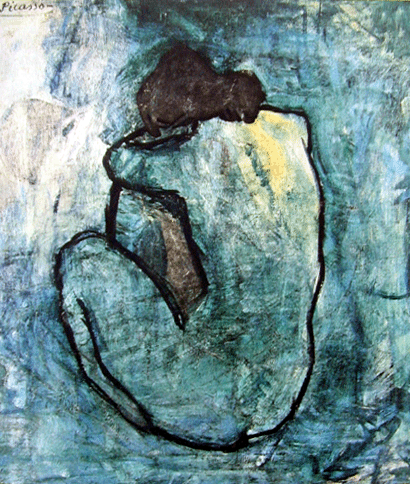
Grief & Anxiety
My mom died a few months ago and I am devastated. In the last few weeks, I have begun to have panic attacks, or at least that is what my doctor calls them. I’ve never had these attacks before. Why now?
First of all, we are so sorry to hear about your mother’s death. We have been through it: My mother died 12 years ago, and I am still struggling to process the loss….
First of all, we are so sorry to hear about your mother’s death. We have been through it: My mother died 12 years ago, and I am still struggling to process the loss.
It is very common to develop a panic disorder (or to have a pre-existing one intensify) after a death. You may have heard of Elisabeth Kubler-Ross, a psychiatrist who came up with what is now known as the five phases of grieving: (1) denial, (2) anger, (3) bargaining, (4) depression, (5) integration/acceptance. Although we know these phases are not the same for everyone (nor do they happen in this exact order every time), they definitely give us a framework with which to make sense of the most common feelings associated with the death of a loved one. Many grief counselors point out (rightfully, we think) that Kubler-Ross left out a major emotion that they see everyday in their practice–anxiety. To us Anxiety Sisters, it is pretty obvious where anxiety fits in this framework: it may be part of each of the phases and often becomes its own after-effect (phase 6?).
I developed panic attacks about 6 months after my father died. Another anxiety sister told me her Obsessive Compulsive Disorder became much more disruptive soon after the death of her mother. Abs’ panic intensified substantially after the death of her grandmother. From what many grief therapists say (and from our own interviews with hundreds of women), these reactions are very common.
Why do we develop anxiety after losing someone?
1) The person that died may have been in the role of caregiver or protector (even just emotionally). A [grand]parent often symbolizes safety, and the loss of that person prompts a very real fear response—that we will be unable to go on without the person we have lost. Our body goes into “fight or flight” even though we are not in immediate danger.
2) We live in a culture (Western) that often tries to pretend death is avoidable and therefore pushes it out of mainstream conversation. We try not to think about it and act like youth and immortality are something we can hold onto forever (if we just buy the right products). The death of someone close to us forces us to confront our own mortality, which again prompts our fear response—am I next? Interestingly, Eastern cultures which incorporate death into their lives much more organically, have little experience of anxiety surrounding loss. This is not to say they do not experience profound sadness and grief—only that anxiety and the fear response are generally absent.
3) Depending on the circumstances of your mom’s death, you maybe experiencing Post Traumatic Stress Syndrome (PTSD). In the case of my father, his illness was long and extremely painful. As one of his caregivers, I was an integral part of his dying process, which was unfathomably difficult. I felt like I had been through a trauma. Accidental and premature deaths very often induce PTSD in survivors and loved ones.
4) Many people report developing anxiety after the death of a parent or sibling with whom they had a difficult (or even severed) relationship. While this person may have been destructive in their lives, [s]he is still someone of central importance. Feelings of longing for what that person should/could have been to them are very common. The loss is every bit as powerful as the loss of a close relationship. The anxiety in this case can reflect feelings of self-blame and guilt in addition to the grief.
While these reasons make sense and certainly apply, my own thoughts on grief and anxiety are a bit different. To me, the pain of losing someone important to us can feel like it is literally too much to bear. So, our brains send us into panic as a way to protect us. If I am having a panic attack, there is no room to directly wrestle with my grief because I am just trying to get through the next hour. As awful as they are, my panic attacks allowed me to be so consumed with them that I could escape, just for a while, from the extreme grief and despair that had enveloped me. (Just my theory—not scientifically proven…)
Whatever the reason, it is clear that anxiety—particularly panic attacks—is connected to the grief experience. However, unlike grief, panic attacks are treatable. I hope you can find a therapist or counselor (one specializing in grief, if possible) or/and a doctor to support you with medication. Many people are also helped by a grief support group. Grieving alone can make anxiety even worse.
To the author of this question, please email us and let us know how you are. We are thinking of you.

Lynne Beauchamp
I have panic attacks since the sudden death of my Sister.
ArtisticInAZ
Thanks! Excellent, and very Meaningful article.
Anon-top fan
I believe there is another stage of grief…your OWN mortality. Freaks me out all the time. I figure when it’s your time, it’s your time. I do not say this sarcastically or to be mean,, ot cause any Sisters grief or more anxiety.. just my last stage of grieving. Be well💜